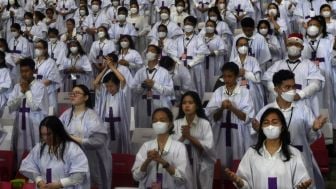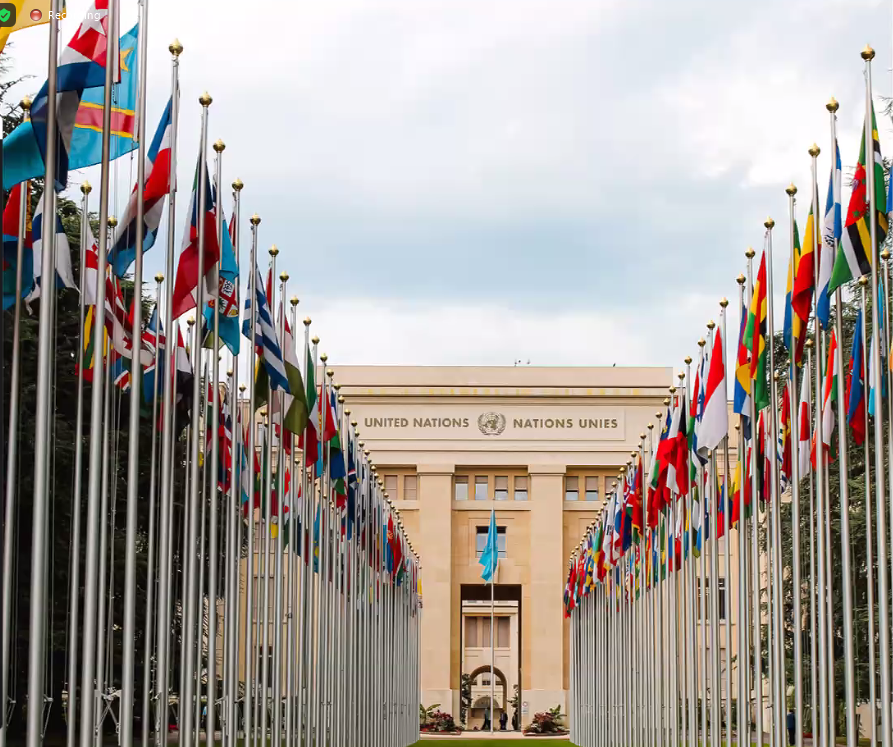
STRATEGIC ASSESSMENT. By mid-2021, there were banners, posters and billboards on the main streets of Indonesia’s major cities displaying information about Indonesia’s G-20 presidency, which began on October 31, 2021. It was a display of how, for Indonesia, the G-20 presidency faces two audiences: the domestic and the international.

Promoting the G-20 and the 2022 G-20 presidency to the domestic audience was important for the Indonesian government, mainly to ensure support and success. Approaching the presidency, the government carried out activities promoting it domestically, in particular raising awareness of the “benefits” of the G-20 and the hosting of the annual summit for Indonesia’s economy.
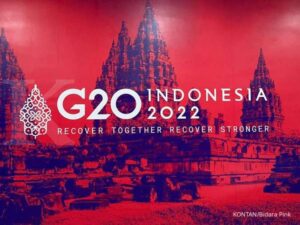
In a speech in November 2021, Indonesian President Joko “Jokowi” Widodo pressed for the country to make the most of its strategic position as the G-20 president to “prioritize national interests.”

The government claimed that the G-20 presidency would bring many benefits to the economy, in foreign policy and in terms of social development, which include a direct impact on Indonesia’s economy by increasing the country’s foreign exchange earnings and a promotion of Indonesia’s openness for business.
For the international audience, the Indonesian government aimed to encourage cooperation and garner concrete results in three priority sectors: global health architecture, the digital transformation of the global economy, and the energy transition.

These priorities make up the flagship agenda of the Sherpa Track working groups and engagement groups. With its own experience during the COVID-19 pandemic, in particular the hardship Indonesia faced as it struggled to keep the health system from being overloaded and the concessions it made to acquire batches of vaccines, Indonesia wants to promote solidarity in addressing the transnational crisis.
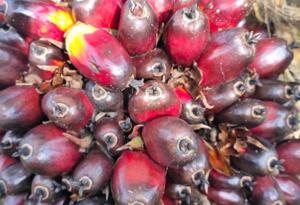
The G20 finance and agriculture ministers welcomed the effort by multiple global institutions to channel a total of $60.5 billion in aid to address the global food crisis. Several international organizations presented their initiatives at the meeting, including the World Bank Group’s (WBG) $30 billion food security response and a $6 billion global platform for private sector intervention; the International Monetary Fund’s (IMF) Food Shock Window; the Asian Development Bank’s (ADB) $14 billion food security response; and the Islamic Development Bank’s $10.5 billion food security response program.
The Group of 20 Leaders Summit in Bali is drawing near. It will be the pinnacle of the G20 process and intense work carried out within the ministerial meetings, working groups and engagement groups throughout the year. Health is one of the priority issues under Indonesia’s G20 presidency.
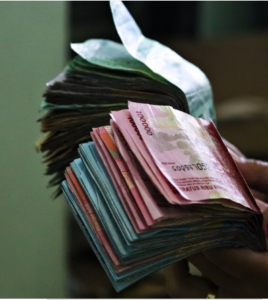
In this regard, the second Health Ministers Meeting (HMM) of the G20 Indonesian presidency will be held on Oct. 27-28 in Bali. It is hoped the meeting will result in the G20 Health Ministers’ Action to Strengthen Global Health Architecture to perform better global health security.
Such architecture is pertinent considering that infectious disease outbreaks and other emerging global health threats are occurring with increasing frequency and severity. Factors such as globalization, urbanization, climate change and the ease of travel and trade mean that dangerous pathogens are more easily transported and spread across the world, irrespective of national boundaries.
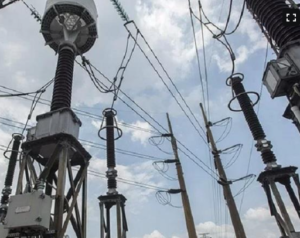
Indonesia is on track to secure a clean energy partnership with rich countries when it hosts a G20 summit in November, obtaining international funding to cut its reliance on coal power and to implement a green and fair transition, energy analysts said.
The multi-billion-dollar agreement is expected to help Indonesia retire coal-fired plants early and ramp up investment in renewables, backed by wealthy nations, development and private banks, and philanthropists.
It has the potential to be “a big win for the presidency” of Indonesia’s Joko Widodo, while serving as an example to other G20 and coal-producing nations that are planning a shift to cleaner energy, such as India and China, he added.
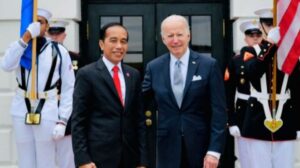
The Indonesian G20 Presidency had a successful conclusion of the 2nd G20 Health Ministers and Health Deputies Meeting on October 26-28th 2022. The Health Ministers Chair’s Summary highlights the deliverables from three Health Working Group (HWG) meetings held throughout the Indonesian Presidency of the G20.
This document reaffirms Health leaders’ commitment in undertaking efforts to strengthen global health architecture, harmonize global health protocol standard, and expand global manufacturing hubs as well as efforts to address tuberculosis (TB), One Health, and antimicrobial resistance (AMR).
On the sidelines of the first HWG, a side event on “Financing for TB Response: Overcoming COVID-19 Disruption and Building Future Pandemic Preparedness” was held on 29-30 March 2022. The Indonesian G20 Presidency developed a document titled “Call to Action on Financing for Tuberculosis Response” to conclude the side event on TB.


